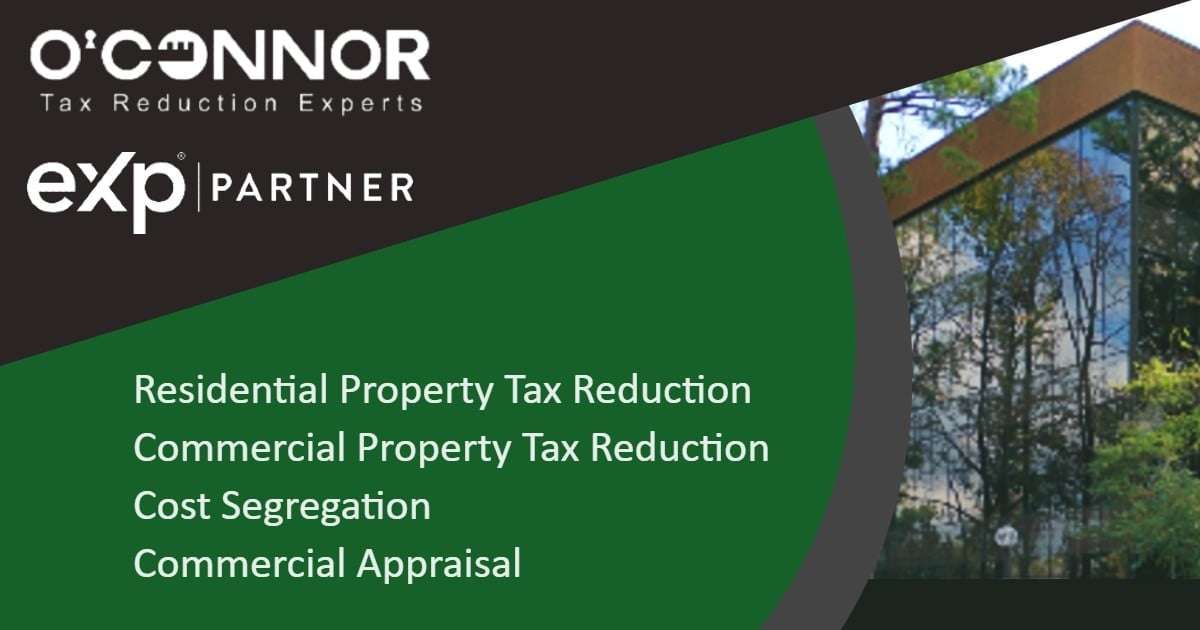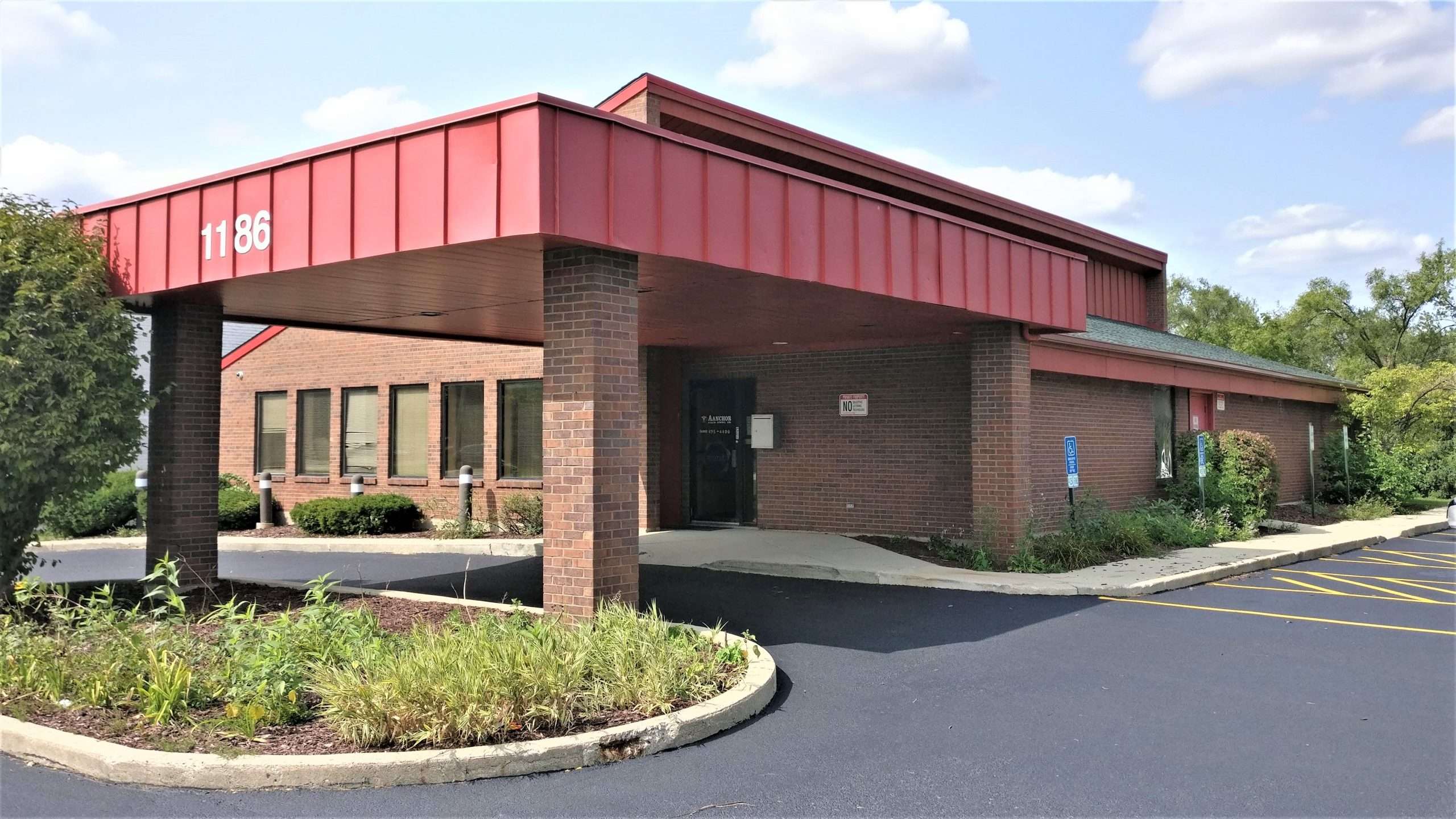
- How last quarter’s macroeconomic, public, and private market data will impact your business
- Industry outlook for 2022
- Economic recovery implications across property types and markets
- Data-backed areas of opportunity and risk for your business




eXp Commercial is one of the fastest-growing national commercial real estate brokerage firms. The Chicago Multifamily Brokerage Division focuses on listing and selling multifamily properties throughout the Chicago Area and Suburbs.






When it comes to cash flow, the Chicago multifamily is the king of the world. Or at least the country, with capitalization rates, a measure of rental income, well above the national average.
Yet, uneasy lies the head that wears the throne. Now, some investors see better room for growth in places like Phoenix and Salt Lake City, where rents have risen faster and more consistently, while Chicago may have peaked.
“We shifted a bit more to Phoenix because we see this huge opportunity,” Drew Breneman, founder, and CEO of Chicago-based multifamily firm Rise Invest said in an interview.
Cap rates, a measure of rental income after expenses divided by a property’s purchase price, are as high as 8 percent on some Chicago area properties, and half that elsewhere. The difference is growth potential.“It’s not necessarily all about the cap rate being higher to attract investment,” Breneman said.
His company owns rentals in Chicago but has recently focused on acquisitions in markets like Phoenix where rents on some properties haven’t been raised in step with the surging market, he said.“Rents are 15 percent to 40 percent below market there. You’re going to buy something at a 3.5 percent cap in Phoenix. I can make that almost a 5.5 percent cap pretty quick,” Breneman said.
It’s not a one-way street out of town for multifamily investors, though. Chicago’s brokers boast of the city’s healthy returns, and out-of-state buyers optimistic about entering northern Illinois’ multifamily market.
“We’re on a record-breaking pace with our team. We’re seeing no slowdown in interest. For every investor that says I’m pulling out, there are still 14, 15, 16 offers on properties that aren’t in the most attractive places,” said Tony Hardy, head of a Chicago Keller Williams multifamily team that brokered a $10.35 million sale of a 40-unit mixed-use building in Hyde Park last month, a neighborhood record price for a mixed-use property with fewer than 100 units, according to RE Journals.
High margins have helped the Chicago area’s multifamily market keep its hot streak alive to start the year, with multiple offers being made on rental and mixed-use properties. A rare Wrigleyville asset garnered a record price per unit in a sale The Real Deal reported last week.
Even Chicago investors sending capital outside Illinois concede the city still offers chances to make money on multifamily assets.
“What the brokers are saying is half-correct. It’s the third-largest city in the country. I believe Chicago and Illinois long-term will be successful because there is just too much critical mass here for them not to be,” Frank Campise, principal at Chicago-based JAB Real Estate, said in an interview.Still, investors like Campise see chances to make more money elsewhere, as Chicago’s double-digit rent growth last year ended up getting outpaced by an even bigger rise for the national average.
Campise’s firm has also recently broadened its holdings from Chicago into Denver, Salt Lake City, and Phoenix markets where he said rent, jobs, and income increases have been more consistent than in Illinois, giving landlords more reasons to justify hiking prices when leases expire than they have in Chicago.

Here's yet another sign that -- at a macro level -- we aren't yet hitting affordability ceilings in market-rate rentals. Perhaps counterintuitively: As renewal rents increase, so does retention. Basic economics teaches us that renewal demand will drop once price becomes an obstacle. But that isn't happening yet. Rents for market-rate apartment households renewing their lease increased 10.5% in February 2022. At the same time, renters with expiring leases renewed their leases at the highest T-12 rate on record at 56.1%. How is that happening? Remember that property managers generally do not offer renewals to non-paying residents, and these numbers include only signed renewals. At the same time, rent collections have been steady. Incomes among renters are surging -- and much more than the BLS is showing for the broader U.S. population. Apartment renters tend to be younger and more likely to have dual-income households in roommate situations. Younger workers are in high demand right now given early retirements and decline in workforce participation among older adults. Incomes for renter households signing new leases surged 15.2% over the two-year period pre-COVID through end of 2021. A typical household in a market-rate apartment has annual income above $70,000 -- keeping rent-to-income ratios in the low- to mid-20% range. Of course, this pace of growth (both in income and rent) isn't sustainable forever... we just don't know how long it'll last. But with loss-to-lease still around 10% and vacancy remaining at record lows plus rising inflationary costs (especially property management salaries), we'll likely continue to see significant renewal increases through most of 2022.
Source: https://www.linkedin.com/posts/jay-parsons-a7a6656_apartments-multifamily-rentals-activity-6906623220351696896-GwCh

New eXp Commercial Partner, O’Connor Tax Reduction Experts
helps our clients add value through subtraction
O’Connor is the largest property tax consulting firm in the United States. O’Connor’s team of professionals possesses the resources and unparalleled market expertise in the areas of property tax, cost segregation, and commercial and residential real estate appraisals. The firm was founded in 1974 and employs more than 550 professionals worldwide.

1186 Roosevelt Rd Glen Ellyn, IL 60137
Square Feet: 3805 Acres: 1.04 Built/Reno: 1983/2009 Occupancy: Vacant Type: Medical/Surgical
Free-standing, fully built-out suburban Medical Office - Surgical Center property. The subject property is approximately 20 miles west of downtown Chicago on busy Roosevelt Road in Glen Ellyn, Illinois, DuPage County, seconds from the Interstate 355 tollway entrance and Interstates 88 and 294 interchanges for easy access by employees and patients.
Situated on a little over one acre, this 3,805-square foot, single-tenant medical office property is well suited for a number of uses including urgent care, surgical, plastic surgery, pain management, and general medical office. The current layout offers a reception and waiting room, two operating rooms, a recovery room, a lab, a clean room, a lead-lined x-ray room, five restrooms (one ADA compliant), two exam rooms, an administrative office, medical record storage, and oxygen storage.
The property is in excellent condition, gut renovated in 2009, a new roof installed in 2017, new HVAC, and a repaved parking lot in 2018. Current ownership performs regular monthly maintenance inspections, repairs, and replacements, as necessary.

Researching and evaluating property data can be complicated and time-consuming across residential and commercial real estate. But thanks to eXp Enriched Data, eXp Realty agents now have a one-stop solution for all things connected to big data in residential and commercial real estate.
With unprecedented access to 152 million U.S. commercial and residential property records, agents can help their clients make informed decisions, and ultimately grow their businesses.
“We help eXp Realty agents save time by aggregating data on their behalf and providing them access to the most advanced applications to analyze properties nationally,” said Benjamin Greenberg, managing director of eXp Enriched Data. “eXp Enriched Data provides agents the ability to perform property valuation opinions with unprecedented speed for more than 152 million residential and commercial properties across the U.S.”
VAL by eXp Enriched Data will launch nationally in the second quarter of 2022 and is currently available to agents in Texas. The program provides eXp Realty agents data sourced from public records and MLS IDX feeds and provides automation of adjustments, calculations, and final deliverable reports. It delivers a price opinion that is accepted by the Federal National Mortgage Association, relocation companies, and mortgage servicer companies.

Within the space of a month, Peter Cecchini, the director of research at the $4.5 billion New York-based hedge fund Axonic Capital changed his outlook for stagflation, an environment where economic growth slows while inflation rises.
It went from not being on the table at all to an almost certainty as Russia's invasion of Ukraine induced a major energy shock, sending oil prices surging, and shifting the broad economic outlook for many countries.
"In history, whenever we see an energy shock that is this extreme, it results in significant slowdowns and or recessions within six months," Cecchini said in an interview with Insider.
Cecchini isn't alone in changing his outlook. Stagflation is becoming a consensus view amongst many strategists and investors. A number of experts have even gone so far as to predict a recession later this year."I looked at swaption vol, 2 year-10 years, and that's predicting a slowdown this year," Cecchini said. "So I don't know if it's an official recession this year, but especially given what's going on in Ukraine. I am in the slowdown camp in the second half of this year."
Even though the outlook for the economic environment is ominous, Cecchini is still making a surprising bet within the real estate sector, despite its well-known struggles in recessionary environments.
"You might have underlying factors in housing like population and household formation — the fundamentals might look good on that side — but if you're going to have quite a big rise in interest rates and quite a deep recession, your house prices are going to come off," Desmond Lachman, a senior fellow at the American Enterprise Institute, said in a recent interview with Insider. Median home prices have been on a tear since early 2020, rising over 27%, according to Federal Reserve data. This is leading many people to believe that the housing market is currently in a bubble.Axonic Capital's specialty is leveraging structured credit strategies for clients. This can include real estate products like Mortgage-Backed Securities (MBS) and Collateralized Loan Obligations (CMOs).
According to the Financial Times, the firm made a name for itself "vacuuming up residential mortgage-backed securities at depressed prices after the 2008 financial crisis."
Investing in real estate in times of market stress is always a balancing act.
"The trade-off is always between the safety of the asset and the probability of default," Cecchini said.
However, multifamily housing remains an area of the market he believes that can still perform favorably.
"It's been one of my favorite sectors since long before I got to Axonic," Cecchini said. "I was positive on multifamily when I was the global strategist over at Cantor Fitzgerald, for example."
Multifamily is a type of housing where there are multiple separate housing units contained either within one residential building or several buildings within a complex. Cecchini lays out two reasons to like the sector of the real estate market:Collateral value is the fair market value of the assets used to secure a loan.
Cecchini looks to home price appreciation for an understanding of multifamily housing collateral value.Home price appreciation is up around 20% year-over-year, Cecchini said. Since home price appreciation leads multifamily rent appreciation by 12 to 18 months, he expects that rents and value for workforce housing and higher-end housing. This will continue to build the collateral value.
Workforce housing is typically programs targeted at households that earn too much to qualify for traditional affordable housing subsidies. During an October 2021 conference, the managing partner and chief investment officer of Axonic, Clayton DeGiacinto described workforce housing as a defensive sector through 2015 to 2020.
However, he noted that COVID-19 tested this thesis, as rental demand and rental prices decreased for the class A properties, while it went up for the class B properties, which are properties with fewer luxury amenities.
Cecchini loathes making year-end predictions but does see the 10-year reaching between 225 to 250 basis points.
"What happens at that level of interest rates is that it spooks equity markets, and then as equity markets get spooked and people sell their equities they buy the long end of the Treasury curve," Cecchini said. "So it keeps rates from running away."
This will help anchor cap rates, Cecchini said. Higher cap rates will have a more significant impact on property valuations.Just as home price appreciation is a good leading indicator for multi-family housing, investors might also want to keep an eye out for when defaults start rolling in.
He said that during the financial crisis in 2008 defaults on car payments were a leading indicator of housing defaults. Since people often need their car to get to work, it was a clear sign of difficult times, soon followed by property defaults. Though in the financial crisis, generally, people wanted to pay the mortgage if they could, Cecchini said."One of the things that we saw is for those that couldn't and who were evicted from their homes, it was a horrible situation and it garnered a public policy response," Cecchini said. "We don't foresee that sort of thing happening again and generally speaking, multifamily, in particular, should hold up well from a cap rates perspective."
In a January 25 note, Cecchini highlighted that even if rent delinquencies should rise, landlords should still have a sufficient cushion to refinance and meet debt obligations.
"Investors properly positioned in a securitization structure should have a comfortable margin of safety," said Cecchini in the note.
eXp Commercial Presents: The 2026 CRE Economic Outlook Navigating the 2026 commercial real estate landscape requires a strategy grounded in ...